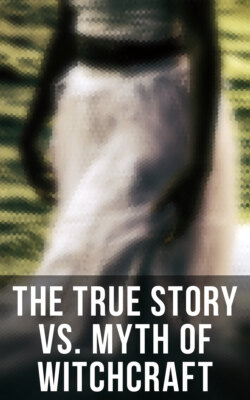Читать книгу The True Story vs. Myth of Witchcraft - William Godwin - Страница 166
На сайте Литреса книга снята с продажи.
Raymond Lulli.
ОглавлениеAmong the European students of these interesting secrets a foremost place is to be assigned to Raymond Lulli and Arnold of Villeneuve.
Lulli was undoubtedly a man endowed in a very eminent degree with the powers of intellect. He was a native of the island of Majorca, and was born in the year 1234. He is said to have passed his early years in profligacy and dissipation, but to have been reclaimed by the accident of falling in love with a young woman afflicted with a cancer. This circumstance induced him to apply himself intently to the study of chemistry and medicine, with a view to discover a cure for her complaint, in which he succeeded. He afterwards entered into the community of Franciscan friars.
Edward the First was one of the most extraordinary princes that ever sat on a throne. He revived the study of the Roman civil law with such success as to have merited the title of the English Justinian. He was no less distinguished as the patron of arts and letters. He invited to England Guido dalla Colonna, the author of the Troy Book, and Raymond Lulli. This latter was believed in his time to have prosecuted his studies with such success as to have discovered the elixir vitae, by means of which he could keep off the assaults of old age, at least for centuries, and the philosopher’s stone. He is affirmed by these means to have supplied to Edward the First six millions of money, to enable him to carry on war against the Turks.
But he was not only indefatigable in the pursuit of natural science. He was also seized with an invincible desire to convert the Mahometans to the Christian faith. For this purpose he entered earnestly upon the study of the Oriental languages. He endeavoured to prevail on different princes of Europe to concur in his plan, and to erect colleges for the purpose, but without success. He at length set out alone upon his enterprise, but met with small encouragement. He penetrated into Africa and Asia. He made few converts, and was with difficulty suffered to depart, under a solemn injunction that he should not return. But Lulli chose to obey God rather than man, and ventured a second time. The Mahometans became exasperated with his obstinacy, and are said to have stoned him to death at the age of eighty years. His body was however transported to his native place; and miracles are reported to have been worked at his tomb. 182
Raymond Lulli is beside famous for what he was pleased to style his Great Art. The ordinary accounts however that are given of this art assume a style of burlesque, rather than of philosophy. He is said to have boasted that by means of it he could enable any one to argue logically on any subject for a whole day together, independently of any previous study of the subject in debate. To the details of the process Swift seems to have been indebted for one of the humorous projects described by him in his voyage to Laputa. Lulli recommended that certain general terms of logic, metaphysics, ethics or theology should first be collected. These were to be inscribed separately upon square pieces of parchment. They were then to be placed on a frame so constructed that by turning a handle they might revolve freely, and form endless combinations. One term would stand for a subject, and another for a predicate. The student was then diligently to inspect the different combinations that fortuitously arose, and exercising the subtlety of his faculties to select such as he should find best calculated for his purposes. He would thus carry on the process of his debate; and an extraordinary felicity would occasionally arise, suggesting the most ingenious hints, and leading on to the most important discoveries. 183 — If a man with the eminent faculties which Lulli otherwise appeared to have possessed really laid down the rules of such an art, all he intended by it must have been to satirize the gravity with which the learned doctors of his time carried on their grave disputations in mood and figure, having regard only to the severity of the rule by which they debated, and holding themselves totally indifferent whether they made any real advances in the discovery of truth.
